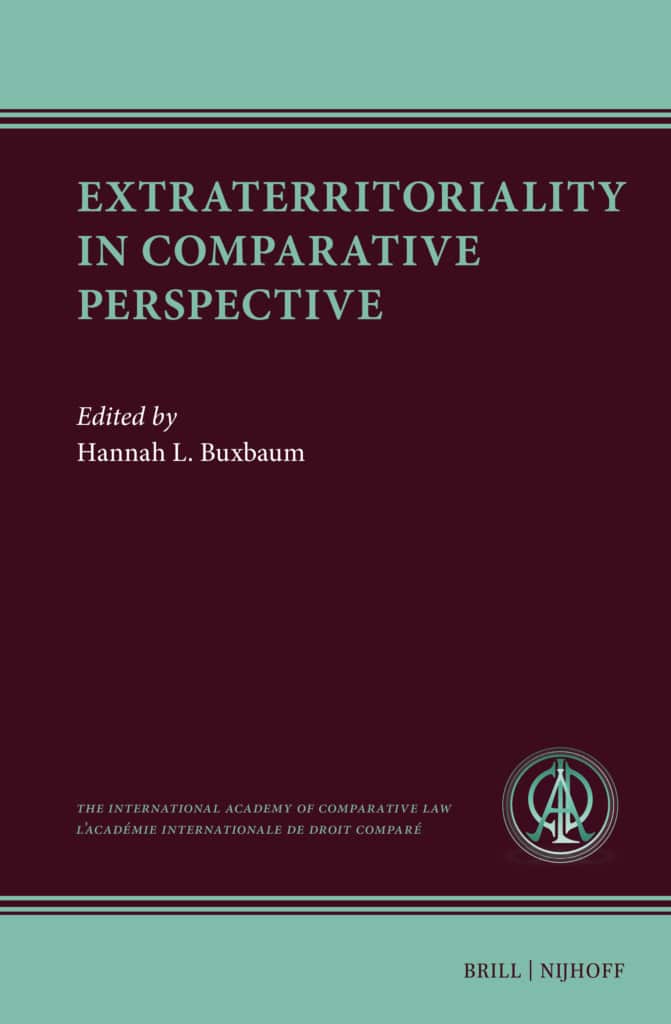State Presumptions Against Extraterritoriality Apply to State Statutes
At TLB, we write a lot about extraterritoriality in general and about the federal presumption against extraterritoriality in particular. For the last three decades, the federal presumption has been the principal tool that courts have used to determine the geographic scope of federal statutes. But what if the statute in question is a state statute?…
Continue ReadingDoes the Securities Exchange Act Apply to Short-Swing Profits Abroad?
Section 16(b) of the Securities Exchange Act requires statutory “insiders” of companies that are registered with the Securities Exchange Commission (SEC)—such as officers, directors, and certain beneficial owners—to disgorge profits from “short-swing” trading within a six-month period. It is a strict liability provision that does not depend on the insiders’ intent. On May 23, 2025,…
Continue ReadingHalkbank Files New Cert Petition
Halkbank, a Turkish state-owned bank accused of violating U.S. sanctions on Iran, filed a petition for certiorari last week seeking a second chance to convince the Supreme Court that it is immune from criminal prosecution in the United States. In its first trip to the Court, back in 2023, Halkbank argued that it was entitled…
Continue ReadingWhen Is a Securities Transaction “Domestic” Under Morrison?
In Morrison v. National Australia Bank (2010), the Supreme Court held that § 10(b) of the Securities Exchange Act applies only to “transactions in securities listed on domestic exchanges, and domestic transactions in other securities.” This holding doomed the securities fraud claims in Morrison because the plaintiffs purchased their shares on the Australian Securities Exchange….
Continue Reading$29.8 Million Judgment in First-Ever Helms-Burton Jury Trial
A Cuban-American plaintiff has won a major jury verdict in the Southern District of Florida against four corporate defendants associated with Expedia Group. The case involves an island off the coast of Cuba, which the plaintiff, Mario Echevarría, claimed was expropriated from his family in 1959. The defendants provided digital platforms that allowed travelers to…
Continue ReadingDistrict Court’s Order in the Venezuelan Deportees Case Was Not Extraterritorial
As was widely reported yesterday, the Trump administration permitted two planes carrying Venezuelan deportees to continue on their way to El Salvador after receiving a judicial order to turn the flights back to the United States. A story in Axios quotes an administration official who explains that they were not in fact “actively defying” the…
Continue ReadingFirst Circuit Argument Weighs Constitutionality of TVPA
Last month, the First Circuit (Judge Lara Montecalvo, presiding, with retired Justice Stephen Breyer and Senior Judge Sandra Lynch) heard oral argument in Boniface v. Viliena. Viliena, a Haitian national who has been a legal permanent resident of the United States since 2008, is challenging a $15.5 million jury award under the Torture Victim Protection…
Continue ReadingExtraterritoriality in Comparative Perspective
Extraterritoriality has been on the outs with the Roberts Court, which has curtailed the reach of U.S. trademark, human rights, securities, and racketeering laws via the presumption against extraterritoriality. But globally, extraterritoriality may be on the rise. Countries have flexed their extraterritorial muscles to address data privacy, human rights, competition law, tax base erosion, and…
Continue ReadingDistrict Court Applies Securities Fraud Provision to Foreign Transactions
Does § 10(b) of the Securities Exchange Act apply to securities on foreign exchanges? Generally, the answer is no. The Supreme Court held in Morrison v. National Australia Bank (2010) that § 10(b)—the Act’s principal antifraud provision—applies only to transactions on U.S. exchanges and to transactions in unlisted securities that occur in the United States….
Continue ReadingAll I Want for Christmas (from the Supreme Court)
Following up on John Coyle’s post yesterday, I’ve prepared my own list of things I wish courts in the United States would do differently in transnational litigation. 1. Abandon the U.S.-Conduct Requirement for the Presumption Against Extraterritoriality The Supreme Court uses a presumption against extraterritoriality to determine the geographic scope of federal statutes. There have…
Continue Reading








